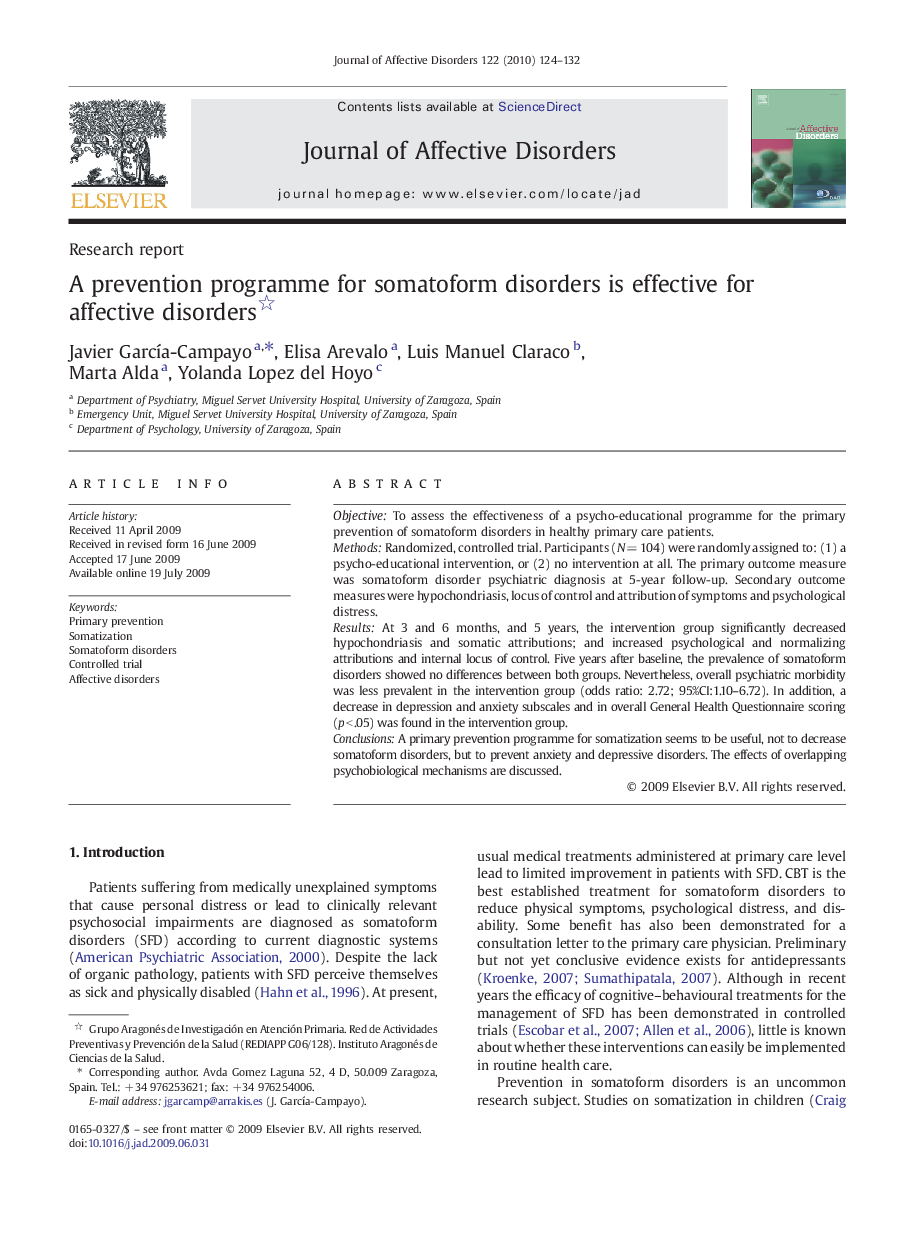| Article ID | Journal | Published Year | Pages | File Type |
|---|---|---|---|---|
| 4186928 | Journal of Affective Disorders | 2010 | 9 Pages |
ObjectiveTo assess the effectiveness of a psycho-educational programme for the primary prevention of somatoform disorders in healthy primary care patients.MethodsRandomized, controlled trial. Participants (N = 104) were randomly assigned to: (1) a psycho-educational intervention, or (2) no intervention at all. The primary outcome measure was somatoform disorder psychiatric diagnosis at 5-year follow-up. Secondary outcome measures were hypochondriasis, locus of control and attribution of symptoms and psychological distress.ResultsAt 3 and 6 months, and 5 years, the intervention group significantly decreased hypochondriasis and somatic attributions; and increased psychological and normalizing attributions and internal locus of control. Five years after baseline, the prevalence of somatoform disorders showed no differences between both groups. Nevertheless, overall psychiatric morbidity was less prevalent in the intervention group (odds ratio: 2.72; 95%CI:1.10–6.72). In addition, a decrease in depression and anxiety subscales and in overall General Health Questionnaire scoring (p < .05) was found in the intervention group.ConclusionsA primary prevention programme for somatization seems to be useful, not to decrease somatoform disorders, but to prevent anxiety and depressive disorders. The effects of overlapping psychobiological mechanisms are discussed.
